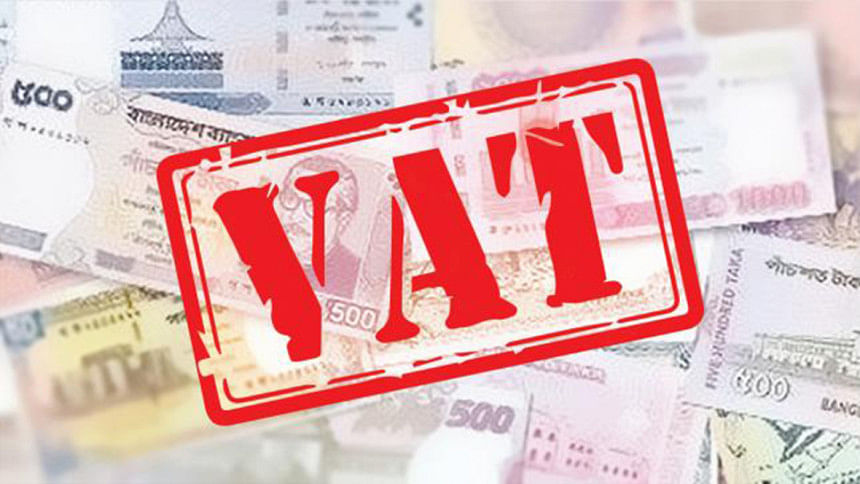New Vat Plan: Govt may back off for now

The government may backtrack on its plan to implement the new VAT law from July this year, in the face of pressure from a section of businesses and lobby groups, a highly placed source said yesterday.
Instead, the government may choose to continue collecting the indirect tax under the existing VAT Act of 1991 and announce a fresh deadline to enforce the much-talked-about VAT and Supplementary Duty Act 2012.
The new law seeks to impose a 15 percent single and uniform VAT.
Revenue officials have already got a hint of the government plan to postpone implementation of the 2012 law, according to the source, who sought anonymity.
But Finance Minister AMA Muhith remains mum, declining to comment on the matter yesterday when reporters asked him to clarify government's position.
“You will come to know when I speak on June 28 and when the prime minister speaks the same day [in parliament]. She will cover some areas. I will cover some areas. There is no chance to know about it before that,” he said.
Finance ministry sources said things began to change after Muhith placed the proposal for implementing the new VAT law from July and putting an end to the multiple VAT rates.
More than 100 goods and services are under the existing VAT net.
To implement the new law, Muhith even offered a concession, raising the VAT-free turnover ceiling to Tk 36 lakh from Tk 30 lakh to make businesses happy. Firms with this annual turnover were to be completely out of the scope of the indirect tax.
He also proposed raising the upper limit for VAT registration to Tk 1.5 crore a year from Tk 80 lakh, in line with demands from businesses.
In addition, he offered VAT exemptions for 1,043 items including essential commodities and services, basic education, healthcare and medical services, numerous life-saving drugs as well as farm produces.
Despite all this, Muhith could not win hearts of many consumers, businesses and some of his colleagues in the same bench in the House.
On June 19, several ministers and influential Awami League lawmakers strongly criticised Muhith's tax and VAT proposals, a scene rarely seen in parliament these days.
Worries grew about spike in living cost because of the proposed application of 15 percent VAT across the board, ending the reduced rates of VAT on essentials such as electricity, spices, home utensils and furniture and branded garments, flats, rod and jewellery.
Sources said a section of businesses started lobbying the government high ups and lawmakers against the new law.
The law, which is planned to be implemented online, seeks to ensure proper record keeping and accounts by businesses so that the collected VAT reaches the exchequer properly.
Revenue officials said some businesses opposed implementation of the VAT and SD law as it would curb the scope of VAT evasion and bring transparency and accountability in the tax administration.
The government made the latest VAT law on advice from the International Monetary Fund to increase revenue collection.
The Bangladesh economy has expanded a lot over the last two and half a decades since the introduction of the VAT system in 1991. But potentials for increasing revenue collection cannot be tapped fully without a new law, as the existing VAT law has various limitations.
The government initially planned to enforce the law from July 2015 through automation of the VAT administration under a Tk 551 crore project, financed mostly by the World Bank.
But its enforcement was deferred twice to July 2017.
On June 9, the IMF's Executive Board appreciated the government move to implement the law and expected that revenue collection would rise.
The World Bank, at a briefing at its Dhaka office yesterday, strongly endorsed the new law, saying higher economic growth and revenue generation would hinge on its effective implementation.
“I do believe the introduction of VAT is investment-friendly. It takes away many of the discretions and the non-transparent nature of some of the existing taxes,” said WB Country Director Qimiao Fan.


 For all latest news, follow The Daily Star's Google News channel.
For all latest news, follow The Daily Star's Google News channel. 








Comments